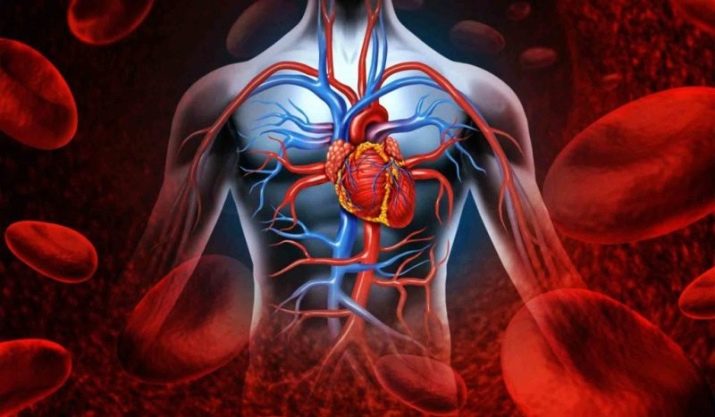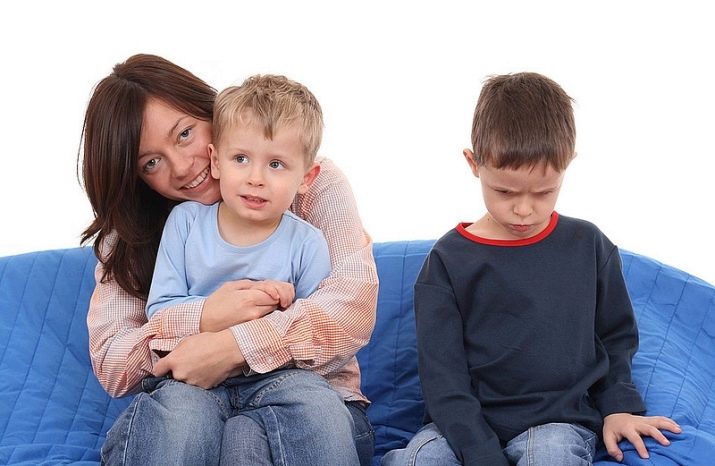The statement that a jealous man necessarily loves is not always true, because jealousy is different, it is caused by different emotions and feelings, has different motives. Understanding the mechanisms of jealousy, knowledge of its types and consequences will not only accurately determine the pathological jealous person, but also provide answers to questions about how to cope with this unpleasant feeling.
What it is?
Jealousy is the phenomenal quality of the human psyche, about the origin of which scientists are still arguing. In psychology, there are quite a few definitions of this feeling, but not one of them fully expresses the essence of what a jealous person is experiencing. It is believed that jealousy is a bright emotion, expressing the need to preserve the sole possession of something. The authors of women's novels and serial directors habitually romanticize this feeling, but in fact there is nothing sublime in it - this is, in fact, a sense of ownership, aggravated under the influence of certain circumstances.
Jealousy gave a lot to man. Thanks to this feeling, people formed the institution of family and monogamous marriage. At the dawn of mankind, this feeling protected the tribe from mixing blood with a neighboring tribe - men subconsciously, not possessing any knowledge from the field of psychology and psychiatry, vigilantly protected women, whom they considered their own, from the encroachment of outsiders. Nature has created such a mental mechanism in order to preserve the unique features of the tribe, its DNA.
Based on this, jealousy over the spectrum of the emotions that make it up is very similar to what people are deceived. A woman is jealous of a man, feeling the threat of losing the "source of resources" for herself and her offspring.
In the animal world, in species in which males take part in breeding, females are also prone to rather aggressive jealousy. If males do not participate in the upbringing of children, then the females-animals do not experience jealousy.
Male jealousy is usually similar and always goes along with feelings of self infringement and inferiority. Man nature is given a certain thirst to dominate, subjugate, conquer. Therefore, he begins to be jealous precisely when he feels that he can lose, lose control and power.
Let's finally dispel the myth of the romance of jealousy and decompose it into component emotions. What our jealousy consists of:
- fear (to lose something significant, to be alone, to lose);
- anger, anger (at yourself, at a partner, at a possible opponent or rival);
- offense (to yourself, to a partner);
- self-pity;
- anxiety.
As you can see, there is nothing romantic and pleasant in this list. There is no love, affection, tenderness, sexual attraction. Jealousy does not always occur in a loving person, and a loving person does not always experience this feeling. Thus, jealousy can be attributed though to the ancient, but rather destructive feelings. There is nothing constructive about it.
In a certain amount and form, everyone has jealousy. Even small children demonstrate something similar to this feeling when habitual relationships with the mother are at risk (for example, at the birth of a second baby).This psychological reaction does not apply to innate, but is considered to be genetically determined, and it is characteristic of all members of the human race.
If it is adequate, normal, moderate, then it does not harm either the jealous, or his partner, or his health. Destructive forms of jealousy can not only spoil a person’s relationships with others and the world, but can also cause serious mental and other diseases. Mechanisms of development of illnesses on the basis of jealousy are considered psychosomatics.
Experts in the field of the psychology of diseases are convinced that jealousy is often the cause of cancer, heart and blood vessels, kidney diseases, and a wide range of reproductive health disorders: from inflammatory diseases to idiopathic psychogenic infertility.
Excessive and pathological jealousy occupies one of the leading places among the causes of family conflicts, divorces, and female assassination and manslaughter.
What happens?
Jealousy jealousy - discord. Psychologists distinguish several types of this feeling, all types have their own character, degree of danger and pathogenicity.
From low self-esteem
This is the most common type. Every second person suffers with this or that degree of low self-esteem. Insecurity is also characteristic of almost everyone. At the cost of certain efforts, a person creates self-esteem, but it is very fragile, vulnerable. His man tries to protect throughout his life. Naturally, in the case of a potentially dangerous situation in which self-esteem can collapse completely, he reacts jealously.
For him it’s important not even that he has or doesn’t have feelings for a partner - it’s important at all costs not to allow a situation in which he will look ridiculous in the eyes of others. Such jealousy often happens without love at all, although the jealous man himself sincerely believes in the statement “jealous means loving”.
Such jealousy is inherent in people who survived a difficult childhood, those who endured punishment, humiliation, could not build a normal constructive relationship with peers. Adults with such a past are usually very vulnerable, sensitive, sensitive.
This type of jealousy is manifested by verbal attacks, insults, reproaches and reproaches. The very jealous people of this type can easily change their other half, but they don’t see anything wrong with their own actions, because the victory “on the side” only helps to strengthen their personal fragile and not quite high-grade self-esteem.
Proprietary feeling
This is also a fairly common relationship scenario. In the emotional spectrum of a jealous man, fear of property loss prevails. For him, a wife is a property, like a cat or a dog. Mothers are often so jealous: if the attitude to the son is proprietary, then maternal jealousy is directed at the daughter-in-law, and sometimes at the friends of the raised child, who can no longer be only her property. It wants to belong to others.
If a person perceives the other as property, he values them, because on the reflex level, mechanisms have been developed for the generation of pleasant emotions from possession. But anyone who can take it, encroaching on it automatically causes strong anger and even aggression from the jealous man. Often, such jealousy is experienced as the strongest insult, the objects of which are those who are jealous and those who dare to take away property.
Love is present in such jealousy, but material, rational. Very often, such a jealous man may resort to revenge, ugly and even despicable acts, as well as tend to physically punish the offender and his "object of adoration and possession." Men with this type of jealousy can be quite cruel.
Abandoned baby condition
This is a very delicate kind of jealousy. Usually it is closely related, according to psychoanalysts, with attention deficit in childhood.If all or most of the love is given to a brother, sister, stepfather or stepmother, the child may grow up with a tremendous fear of losing a loved one. It is this fear that underlies his jealousy. But such jealousy is distinguished from the previous kind (possessive) by the lack of a relation to a person, as to something only his personal. A person is simply afraid of losing a loved one.
It is shown by episodes, and when the jealous man receives his portion of love and attention, he calms down for a while, ceases to torment himself with conjectures. It is these jealous people who better than others are able to forgive the facts of adultery, if they actually occur. They are ready to come to terms with the presence of someone else in the life of their partner, if only they would not abandon them, they would remain with them. They are anxious, indecisive, they never decide to arrange disassembly with assault, only occasionally will be reminded of their jealousy with weak and silent reproaches.
Moralization
Not a drop of love in such jealousy does not happen. A jealous man is not even so jealous as he has no idea what he really feels about his partner. Obviously, one thing is that a partner does not suit him with something, and there is a huge need to change him (her), to influence him (her). But it is impossible to do this directly, and therefore a person falls into a jealous state, which is a projection of his own confused and unresolved feelings and problems.
Surprisingly, the jealous moralizer absolutely does not want to get rid of his jealousy. She "indulges" his egoism, he needs her, she is part of his character.
Sadism
This is a pathological jealousy, which very often accompanies certain mental disorders, as well as irrepressible craving for alcohol or drugs. It has a lot of paranoid. It is a disease, not love. The purpose of the jealous man is only one - to completely suppress another person, to subjugate him.
Very often, such jealousy is unreasonable, the jealous man’s evidence of his innocence is not taken into account by the jealous, he is jealous simply because his partner’s humiliation gives him sadistic pleasure. Develops gradually. At first, this behavior is even approved by society. It only stirs up a sense of self-righteousness in the jealous man. How jealousy-paranoia can end is difficult to say. It does not pass by itself, does not decrease.
This form of relationship may well suit the same, described above, “abandoned child”, who will even like that he, being absolutely submissive, remains close to his own person.
Crazy
This is a typical pathological jealousy - a variety of the most dangerous conditions, which often become the causes of murder and suicide. Blind, manic jealousy can develop from any of the above listed types, but only if the person has certain mental prerequisites for this. Evidence and common sense are not needed by the jealous man; she is convinced of the fact of infidelity and betrayal. He does not want to hear and listen to any arguments.
At first, the jealous man enjoys his suspicions. They give him masochistic pleasure. There is no difference whether there is a fact of treason - in any case, the jealous man remains satisfied with himself (if there is no betrayal, he exhales with relief and praises himself for his vigilance, and if there is, he praises himself for his perspicacity and keen mind). Then suspicion becomes small, they cease to please, it is necessary to increase the "dosage" of experiences - this is how invented, unrealistic reasons appear.
Then the person stops hearing any arguments and begins to suspect the partner that he is plotting something against him, wants to poison him, for example.
Pathological jealousy is very rich in manifestations: from surveillance and espionage to violent scenes “from scratch”, from blackmail to restriction of a partner’s freedom (closing him in an apartment, total ban on communicating with someone), assault, violence, sexual violence and cruelty.Pathological jealous people need qualified psychiatric treatment, and if they refuse it, they should be kept at a distance from them in order to preserve their own psyche, health and life.
Good or bad?
A jealous man is not the best characteristic. It is unlikely that someone will consciously start a relationship with a partner, knowing that he is a big jealous man. But at the initial stage of a relationship, it is usually very difficult to distinguish between a normal, inherent in everything from time to time, jealousy from a feeling of pathological, indefatigable. Zealous attitude is rather destructive. It adversely affects the one who is jealous, and the one who finds himself in the position of the victim. At the same time, there is not much difference what kind of feeling it is - the consequences can be negative.
Jealousy can break even strong relationships. It can be a manipulation when the jealous one wants to achieve something, and unpleasant scenes can ruffle even an imperturbable person. The accumulation of negative emotions, which occurs in both participants of the process, can gradually lead to the development of psychosomatic diseases. Living under stress is quite difficult. It means living with great limitations. The trust, respect for each other, and the initial emotional equality of rights important for normal relations is lost.
Some advise using jealousy for the good, that is, sometimes manipulating it to revive feelings that have begun to fade, to ignite a spark of interest in the eyes of a partner. Sometimes this feeling really has such an effect - after reconciliation, feelings flare up and relationships in a couple “come to life”. But this effect is temporary. Each time, the pair will need more and more emotional shakes, a little jealousy will become small, and this will be the beginning of the development of a pathological condition that is dangerous for both.
Allegations that jealousy can help recognize true love generally sound absurd, especially since we already know that these concepts are almost not interconnected. The only advantage that can be considered in this psychological process is the tendency of some jealous people to turn energy on themselves.
Being jealous, they begin to increase their own value in the eyes of their partner: they buy flowers, lose weight, stop drinking and begin to show signs of attention. But this happens, unfortunately, infrequently.
Psychological causes of jealousy
Jealousy can have a variety of reasons. Sometimes they are not even realized by man, that is, they exist only on a subconscious level. Let's see where jealousy comes from.
- Personality disorders (in particular - narcissistic and alarming). In the first case, the person is convinced that he is beautiful, he has no equal, he does not allow situations in which his authority could suffer. In the second, the opposite is true - there is uncertainty, fear of failure, of the future.
- Low self-esteem. It may be such from childhood or it may appear under the influence of certain negative events, failures and failures, after which a person develops a painful perception of his own persona, lack of confidence in his abilities and virtues, distrust of people.
- Neurotic disorders (head injuries, some other disorders of the central nervous system).
- Physical impairment and reduced sexual function (kind of jealousy low self-esteem).
- Defensive offense (jealousy is a manipulation, the task of which is to divert the partner’s attention from her own infidelities, to turn his attention to conflict, to make her justify).
- Big difference in age. Pathological feeling arises whenever there is a misunderstanding of any kind between partners.
- Experienced experience of betrayal, treason. The more traumatic and difficult the recovery period was after the shock, the more likely it is that a person will transfer his negative experiences to any subsequent relationship and be wary of the new partner.
- Difficult childhood (lack of love from parents).
The development of jealousy contributes to personal egoism, high self-esteem, addiction to alcoholic beverages and narcotic substances. Even if a person quit drinking or taking drugs, was treated, he has an increased risk of disturbing the perception of reality in the future. There are a lot of pathological jealous people among former alcoholics.
Signs of
Unfortunately, it is quite difficult to recognize the pathological jealous at once. This can be a very charming, intelligent, well-read, educated person or a timid and shy, passionately in love. Behavior options before the onset of inadequate reactions - hundreds and thousands. But there is one feature by which it is possible, albeit indirectly, but to try to guess an increased tendency towards jealousy. This is a vivid imagination, sexual fantasies, as well as a certain tendency to often return to the same thought, its obsession. It is just such a set that quite often starts the simulation of situations of betrayal in the human psyche, regardless of how good the reason was for this (and whether it was at all).
It is very easy to recognize a jealous partner:
- He blames baseless. Any signs of attention, even far from intimate ones, are perceived by a person from the side of the surrounding sex as a hint at the possibility of having sex with his second half on the side: a colleague drove home, an old acquaintance called, lingered at the porch, talking to a neighbor - it all becomes cause for reproach. And if a partner stayed at work or didn’t pick up the phone after they started calling him, this is a reason to sort things out.
- Attempts to control. Manifestations of this feature can be different: from questions about who called and why, why it is so late, where the partner goes and with whom to this espionage with checking the phone, correspondence in social networks, working out business and business contacts, friends and acquaintances. It is important not to miss the moment when the jealous man tries not only to check, but also to establish his own rules, to manipulate - to prohibit to go or go somewhere, to prohibit communicating with old acquaintances or colleagues outside the work process.
- Scandals and scenes. Here there can be a great many symptoms. Some triple meticulous digging, others - a loud tantrum, and others generally prefer the public jealousy scene in front of neighbors, relatives or acquaintances. There are those who fall silent and withdraw into themselves, long and defiantly offended, limit communication and sexual contact.
In a relationship with a jealous, it is important to know that his main goal is to cause you to feel guilty. Even if you have nothing to confess, there was no adultery, then, in the opinion of the jealous, you must sincerely repent that you gave him reason to doubt and suffer. Don't play along with him. Explain calmly and seriously that there is no reason to worry, you have nothing to blame yourself for. If this is not enough, do not be humiliated, do not conflict.
It is possible that the jealous man has already crossed the edge of the norm, and now he needs not your humiliation, but qualified psychiatric treatment.
What leads to?
If jealousy is not an easy role-playing game, which the spouses consented by mutual consent to gain more thrill, then there is no point in talking about some benefit from it. Jealousy always destroys relationships and personalities of people. Those who experience this negative set of emotions, harass themselves, their sleep is disturbed, they are unable to adequately assess reality.
Surveillance, espionage, suspicion take up so much time and effort that a person forgets why and for what reason these relationships started from the very beginning and were thought of.
Living under the same roof with a jealous painful and for the second side. That is why the tired of the charges partner filed for divorce. Suffering adults can in no way serve as a positive example for children if they are in a family. Scenes and scandals traumatize the child's psyche, and there is also a high probability that the child will take as a basis the behavior pattern of one of the parents. If the jealous man becomes an example, then in his own family such a child will practice suspicions and insults, and if the victim becomes an example, then the grown-up child can avoid any relationship and start a family, not wanting to become a victim.
At the physiological level (if what is said in the psychological aspect does not convince), we note that:
- at the time of strong jealousy, a person experiences emotions that increase the level of the hormone vasopressin in the blood (his task is to improve and increase blood flow to the muscles during exercise);
- the jealous man produces more adrenaline and endorphin;
- the excess of these hormones increases the likelihood of stroke, heart attack;
- with a prolonged state of jealousy, anxiety increases;
- stress hormone production becomes constant;
- weight increases;
- there are disorders of sexual functions, infertility (stress hormones suppress partially the production of female and male sex hormones).
What is the difference between jealousy and ownership?
When your property (what you consider yours) risks being seized by someone else, there is no time to analyze the situation. Look for differences to understand that this sense of ownership or jealousy, no one will. Nature provides only two options for action: to give or fight for his last breath. Therefore, it is desirable to know the differences, not even the most jealous, but the one who has become the object of jealousy.
The sense of ownership that says in a jealous man usually does not exclude the concept of love, but this particular love: the partner does not even think to give you the freedom of choice. If the partner decides everything for you and only puts you before the fact, then this is most likely the feeling of ownership. A partner who is led by the fear of losing his own, and not love, is distinguished by heightened irritability when the subject of property becomes uncomfortable (does or says something that he does not need to say or say).
A loving person never deprives a partner:
- the right to choose;
- voting rights;
- self esteem and dignity.
Everything else is a merciless struggle for the right to possess.
How to get rid of it?
If you are jealous and have already concluded that it is time to get rid of jealousy, you are halfway to success. To accept this fact is the most difficult. Or rather, to take responsibility for jealous experiences - you created them yourself.
Look attentively at yourself, at your actions and words, accusations and reproaches from outside. Put yourself in a partner's place.
Usually, the method of replacing negative thoughts and images with positive ones helps quite well: for example, every time insidious and despicable thoughts about a partner creep in, remember one good event from your life together, one happy, previously lived, day. This will help push out fear and resentment, replace them with gratitude, joy and recognition to the partner.
If jealousy has acquired signs of pathological, and the jealous man does not want and cannot do anything with it, the second half has only two options: either endure and put his life at risk every day and hour, or leave. Staying with a person can continue only under one condition: he agrees to a visit to a psychiatrist, prescribing treatment, since such jealousy is qualified by experts not as a whim or a character trait, but as a “paranoid delusional personality disorder”.There are a lot of professional methods: from drugs to hypnotherapy, which can alleviate the condition and reduce the negative manifestations of delusional jealousy. Do not treat it can not - the state progresses.
In order to defeat jealousy in herself, until she became a mental illness, you need to follow the advice of psychologists.
- Stop any actions that do not contribute to the interests of your love (cancel surveillance, it is worth the effort to stop reading messages and partner social networks).
- Work with fears. If there is a fear of being alone, increase self-esteem, make new friends, get a dog, find an interesting hobby. If there is a fear of being left without a specific person as a source of any benefits, learn how to get these benefits yourself (go to work, upgrade skills, set ambitious goals).
- Stop comparing yourself to others. Comparisons only reinforce the feeling of inferiority. You are a unique person. And the partner chose you.
- Take active steps to improve relationships (avoid conflicts, spend a weekend together, normalize an intimate life, it is useful to have a shared hobby).
- Be honest with your partner. Just talk, calmly and thoroughly, with trust and respect for each other. Do not rush to do stupid things, give your partner a chance.
- Learn to forgive. Both yourself and your partner. It helps a lot to cope with negative emotions. Even if your suspicions are confirmed sooner or later, the ability to forgive will be very useful and will help to cope with disappointment.
How to overcome jealousy, see the following video.




































